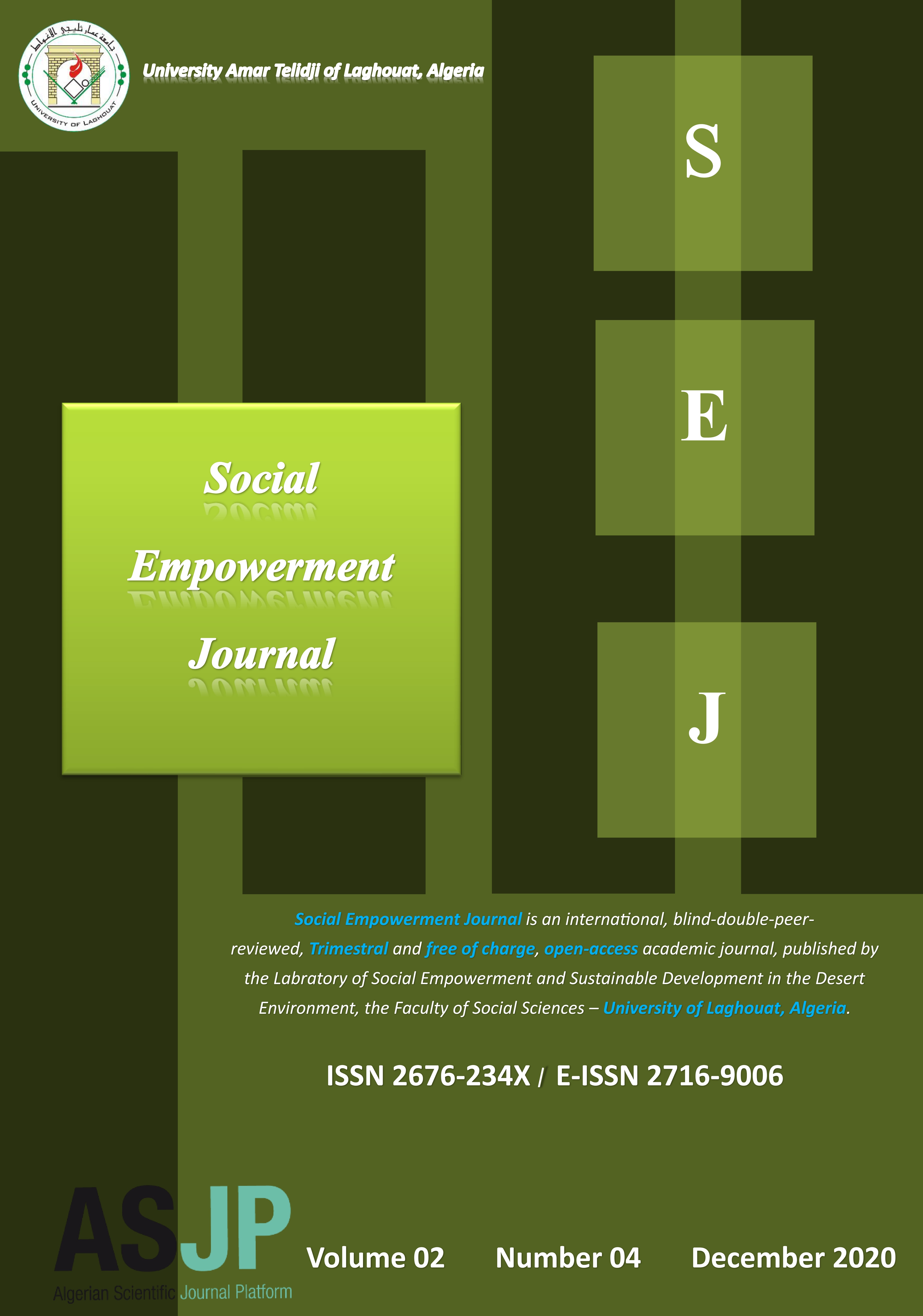Political and constitutional engineering
الهندسة السياسية والدستورية
Abstract
This study tries to shed light on what political and constitutional engineering is, and this happens after the process of making the necessary adjustments to the existing thing, that is, bringing about the necessary reforms to the constitutional bodies and institutions, as well as for the law to be above all, not to distinguish between the ruler and the ruled, and to protect human rights and punish Violators, and the separation between political institutions, with an emphasis on the supremacy of the legislative institution as it is the one that legislates laws, and the independence of the judicial institution, which leads to the transition of the state from backwardness to progress or from progress to higher progress with the development of a long-term strategy that keeps pace with developments that occur at the level The study concluded that political and constitutional engineering is a necessary need for all countries, especially countries of the South.
Downloads
References
- Arabic references in English:
Al-Jasoor, N. A. (2008). Political, Philosophical, and International Terminology Encyclopedia. Dar Al-Nahda Al-Arabia.
Al-Kayali, A. W. (1979). Political Encyclopedia. Arab Institution for Studies and Publishing.
Rafiqi, A. S. (2017). The Art of Possibility. Don Publishing and Distribution House.
Al-Musallamani, A. M. M. (2018). Political Engineering. What Was and What Should B, Dar Al-Masriah Al-Lubnaniah, Egypt.
Barqouq, A. (2009). Concepts in New Comparative Politics. Comparative Political Systems Department, College of Political Science and Information, University of Algiers Ben Youssef Ben Khedda.
Khudr, L. I. (2005). Democracy Between Reality and Illusion. Al-Alam Al-Kutub Publishing, Distribution, and Printing.
Group of Authors. (2014). Constitutional Debate and the Transitional Phase in Egypt: Between January 25th and June 30th. Arab Centre for Research and Political Studies.
Al-Ani, H. S. (1986). Comparative Political and Constitutional Systems. University of Baghdad Printing Press.
Al-Anbaki, T. H. H. (2015). Contemporary Political and Constitutional Systems: Foundations, Components, and Classifications. Al-Ghfran Library.
Al-Jubouri, K. S. (2015). Political Parties and Political Reform in Jordan: The Islamic Action Front as a Model. Zahran Publishing and Distribution House.
Abdul Fattah, L., & Al-Zayani, O. (2011). Constitutional Engineering and the Requirements of Reform: A Reading in Some Elements of Constitutional Quality. Centre for Human and Social Studies and Research, Mohammed First University, Morocco.
Al-Sousi, A. (2015). In Democratic Transition and Constitutional Reform in Moroccan Countries. Publications of the Atarsh Foundation for Specialized Books, Tunisia.
Aicha, B. (2017). Foreign Policy Engineering in Light of Sovereignty Constants: The Western Sahara Issue as a Model. Unpublished Doctoral Dissertation, National School of Political Science, Algeria.
Abdul Zahra, A. S. (2019). Political and Constitutional Reform in Algerian and Mauritanian Political Systems, [Master's Thesis, College of Political Science, Al-Mustansiriyah University, Baghdad].
Madfouni, A. (2015). Constitutional Engineering and Political Reforms in the Arab World, [Master's Thesis, Faculty of Law and Political Science, Arabi Bin Mahdi University, Algeria].
Naïma, B. D. (2015). Political Engineering and Its Role in Achieving Democracy and Activating Good Governance. Journal of Political Studies and International Relations Generation, Generation Research Centre, Beirut.
Abdul Ali, A. (2014). Electoral Engineering: Objectives, Strategies, and Its Relationship with Political Systems. Political and Legal Notebooks, University of Kasdi Merbah Ouargla, Algeria.
Ramadan, Z. (2012). Electoral Engineering: An Approach to Standards and Costs of Electoral Systems. Strategic Studies, Al-Basira Centre for Research, Consulting, and Educational Services, Algeria.
Salek, N. (2018). Specificity of Institutional Engineering in the Constitutions of Arab Political Systems. Algerian Journal for Security and Development, University of Batna El-Hadj Lakhdar, Algeria.
Bouziane, A. (2016). Modern Constitutional Engineering: An Applied Study on the Algerian Constitution. Law Journal, Faculty of Law, Legal and Administrative Sciences, University Centre of Zabana, Algeria.
Be-Felousse, E. (2010). Constitution Engineering and Its Protection. Al-Furat Journal, Al-Furat Centre for Development and Strategic Studies, Holy Karbala.
Al-Jubouri, K. S. A. (2020). Electoral Engineering and Improving Parliamentary Performance. Regional Studies Journal, University of Mosul, Nineveh.
Laroussi, R. (2012). Effective Electoral Engineering: A Real Approach to Parliamentary Development. Political and Legal Notebooks, University of Kasdi Merbah Ouargla, Algeria.
Telili, F. B. O. (2020). Political Engineering. Al-Hewar Al-Mutamadin, No. 6587. Retrieved from: http://www.ahewar.org/debat/show.art.asp?aid=680412.
Astal, K. (2011). Political Engineering: Conceptual Rooting and Preliminary Approach. Retrieved from http://www.k-astal.com/index.php?action=detail&id=179.
Balrouin, M. (2012). Political Engineering. Retrieved from: https://vision4iraq.blogspot.com/2012/09/blog-post.html.
Balzouin, M. (2011). For a State Based on: Justice, Choice, and Law. Retrieved from: http://mohamedberween.blogspot.com/.
Aldarsony, F. N. (2016). Diplomatic Engineering and Diplomatic Etiquette. Retrieved from: https://fahadaldarsony.blogspot.com.

This work is licensed under a Creative Commons Attribution-NonCommercial 4.0 International License.





















